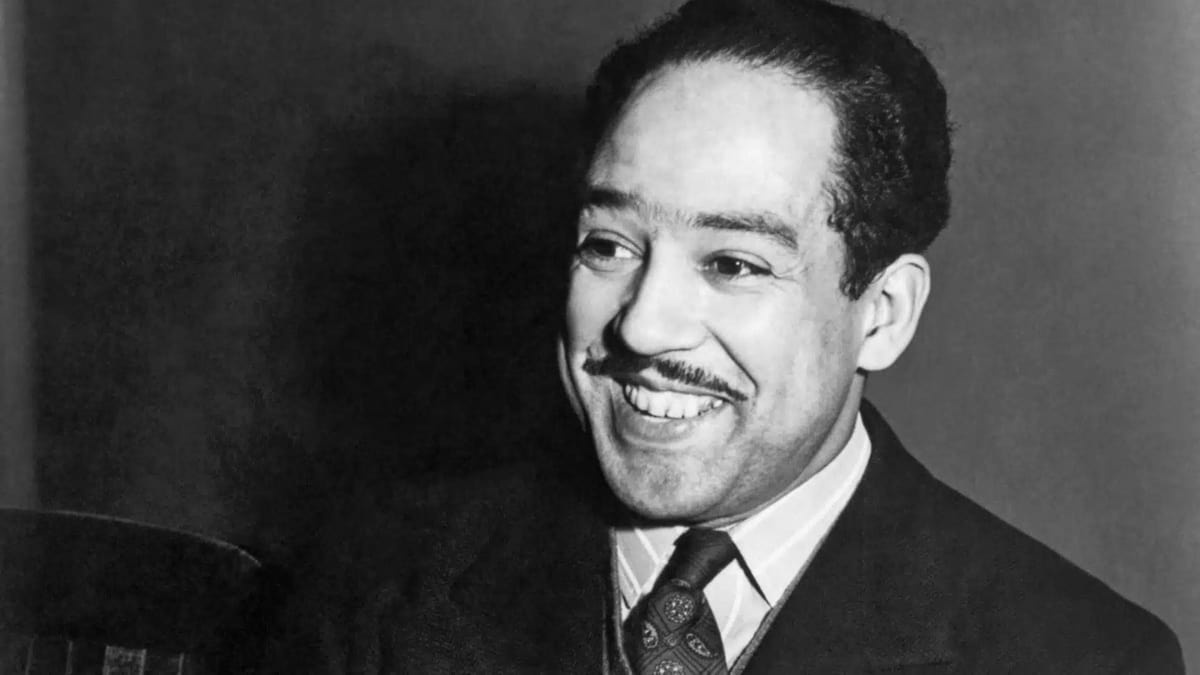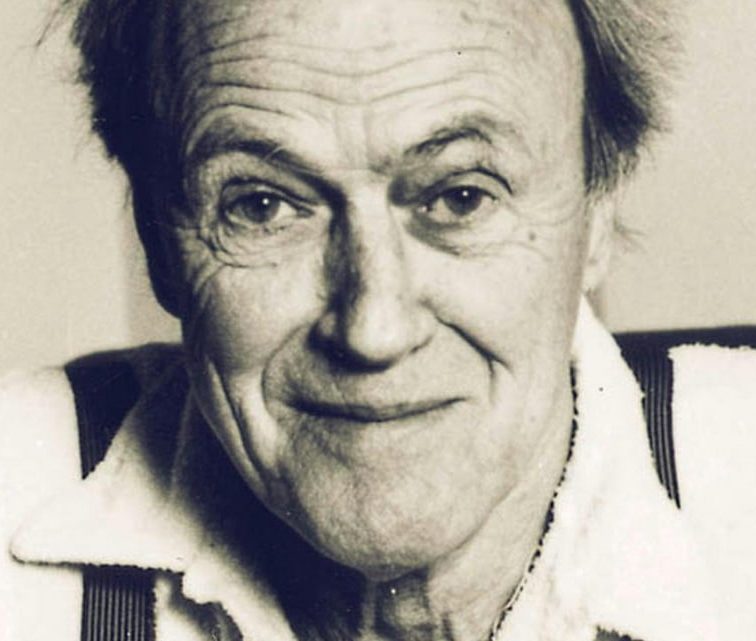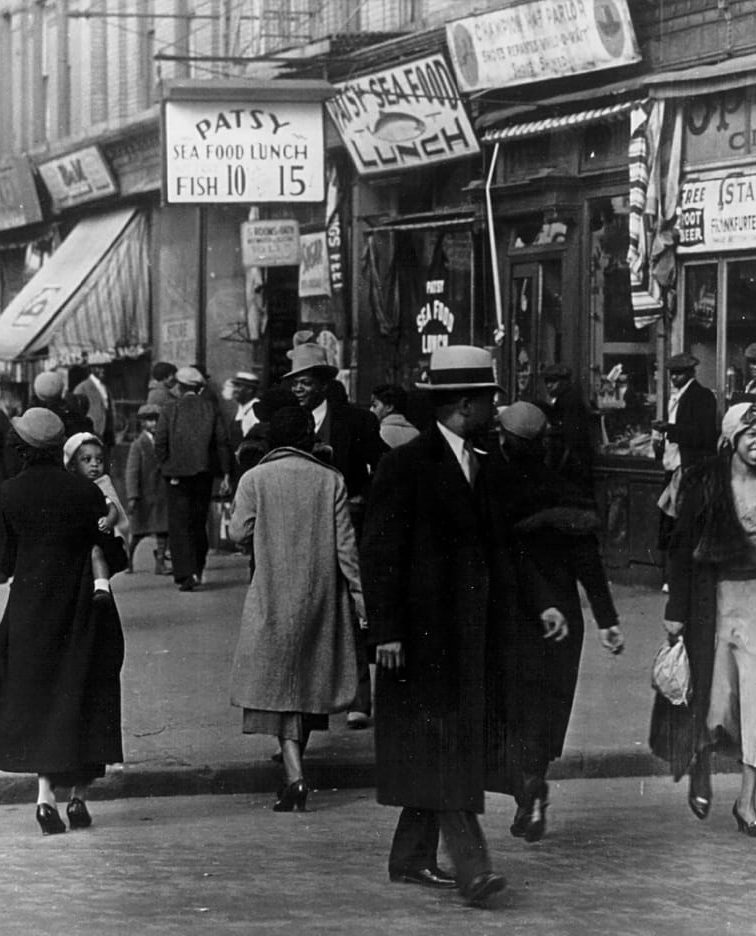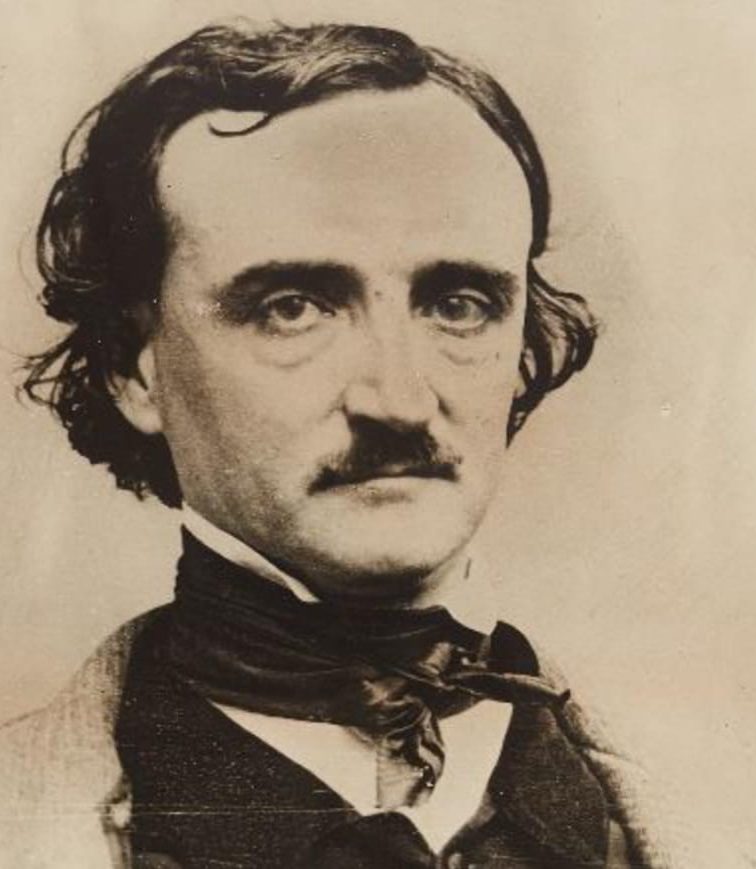Step into the fascinating world of Langston Hughes. A literary giant of the 20th century, Hughes’s legacy stretches beyond his iconic poems like “Dream Deferred.” Born in Joplin, Missouri, in February 1901, Hughes’s influence was so vast that his works were translated into multiple languages. Not just a poet, but a social activist, he used his pen to address issues of racial inequality and was a driving force behind the Harlem Renaissance.
As we delve into fun facts about Langston Hughes, you’ll uncover a rich tapestry of stories, struggles, and successes.
1. Born in Joplin: Langston Hughes’s Hometown Origins
Tucked away in the southern reaches of Missouri is Joplin, a place that holds the honor of being Langston Hughes’s birthplace. Born on February 1, 1901, this city’s rhythms and tales were Hughes’s initial lullabies. The vibrant African-American community of Joplin imprinted an indelible mark on Hughes’s young psyche.
Yet, Joplin was just the beginning. Hughes’s childhood here was a prelude to the rich narratives of Black life he’d pen in years to come. His formative years in Joplin were instrumental in shaping the backdrop of many stories he narrated later.
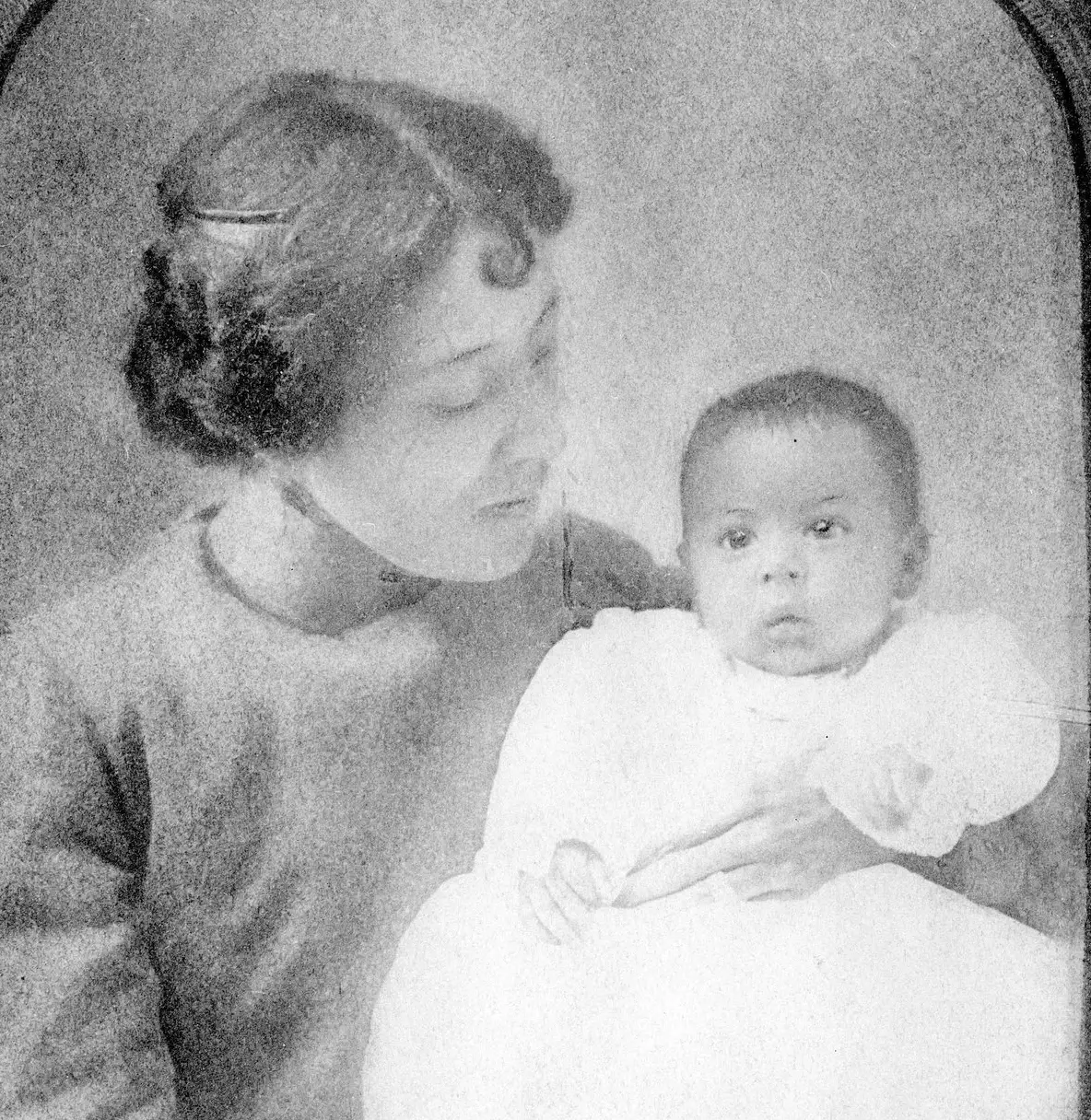
Image: Wikimedia Commons
2. The Name Game: James Mercer Langston Hughes Unpacked
Dive into the name James Mercer Langston Hughes and you’ll find a treasure trove of history. It’s not just a name but a chronicle of legacies. “James” and “Langston” aren’t random choices – they’re nods to his family, notably his grandfather. James Mercer Langston made history by becoming the first Black American elected to public office in the United States.
But why does this matter? Because Langston wasn’t just carrying forward a name; he was bearing a lineage. A lineage where pushing against the current wasn’t an option; it was a norm. In every sense, Hughes’s name encapsulated heritage, strength, and trailblazing spirit.
3. Harlem’s Heart: Hughes’s Role in the Harlem Renaissance
Envision the Harlem Renaissance – a period of explosive Black cultural and artistic expression. At its core was Langston Hughes. Moving to Harlem as a young man, Hughes wasn’t just influenced by its vibrant culture; he became one of its defining voices. His pieces, like “The Weary Blues,” blended the neighborhood’s pulsating jazz rhythms with poetic narrative, creating a unique style.
But what’s even more fascinating? Hughes was a teenager when he penned “The Negro Speaks of Rivers,” a piece that set his trajectory as a Harlem Renaissance stalwart. Beyond just poetry, Hughes ventured into novels, essays, and plays, making him a veritable jack-of-all-literary-trades during this golden age of Black artistry.
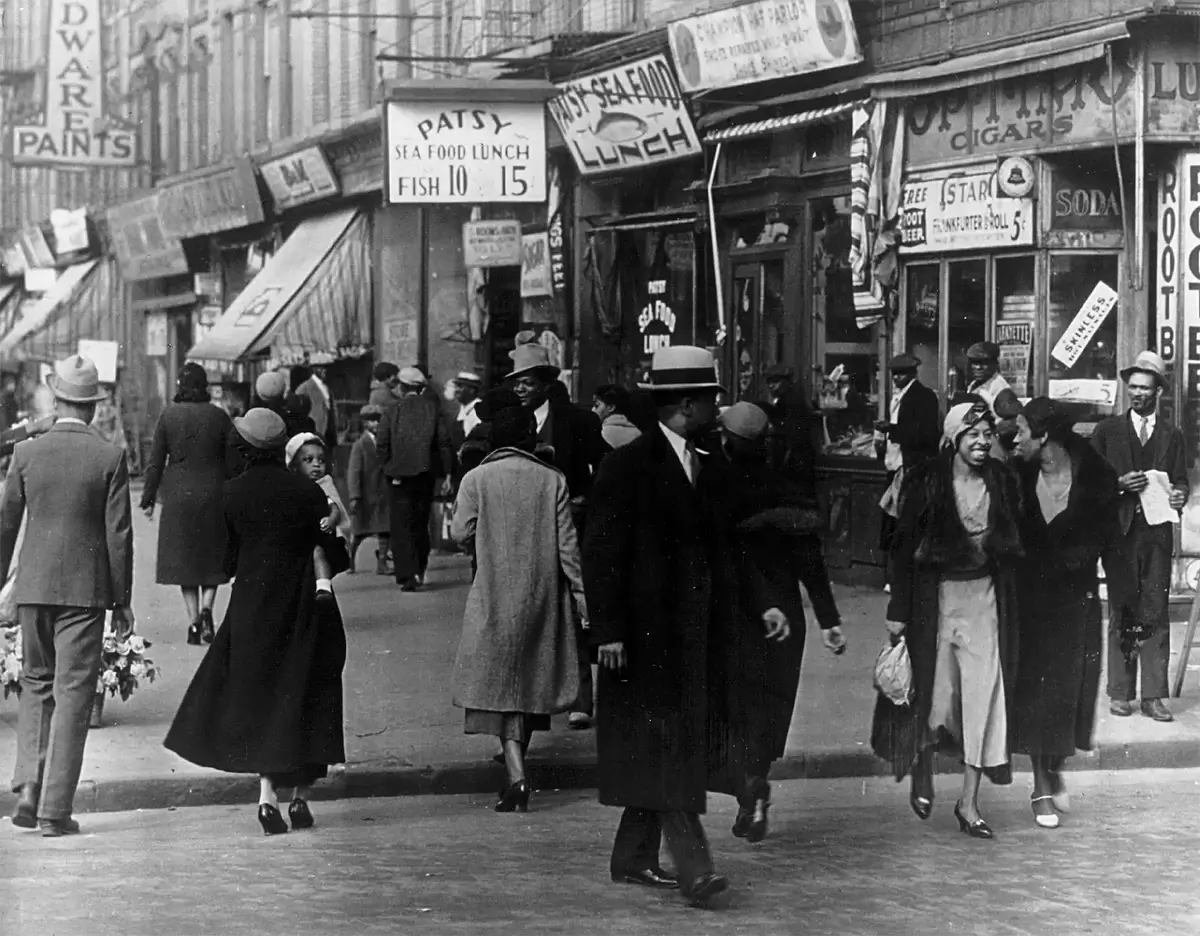
Image: Britannica
4. Budding Young Poet: His First Poem at Age 13
By 13, most of us were grappling with the turbulence of adolescence. But Langston Hughes? He was embarking on a literary journey. At this tender age, Hughes penned his first poem. This wasn’t just a schoolboy’s scribble; it was a glimpse into the brilliance that would come.
It’s awe-inspiring to think that a teenager from Joplin, Missouri, could craft words that resonate with so many. The seeds of his future masterpieces were sown right then, during these early years, showing the world that genius often starts young.
5. Around the World: Langston’s Global Travels
Langston Hughes wasn’t just confined to the literary circles of Harlem. His quest for knowledge and experience took him around the globe. From the vibrant streets of Paris to the bustling lanes of Africa and even the distant coasts of the Soviet Union, Hughes’s passport was stamped with adventures.
These travels weren’t mere vacations. They deeply influenced his writings, infusing them with global perspectives. Each journey gave Hughes fresh insights into the Black diaspora, enriching his prose and poetry with multicultural dimensions.
6. Versatile Talent: Not Just a Poet – Novelist, Playwright, and More
While the world reveres Langston Hughes for his poetic prowess, his talent wasn’t just limited to verses. He was a literary chameleon, seamlessly transitioning from being a poet to a novelist, then to a playwright, and even a columnist. Books like “Not Without Laughter” showcased his narrative abilities, while plays like “Mulatto” highlighted the dramatist in him.
It’s this versatility that made Hughes an undeniable force in the Harlem Renaissance. With each new format, he brought fresh narratives and perspectives, solidifying his place as a multifaceted literary genius.
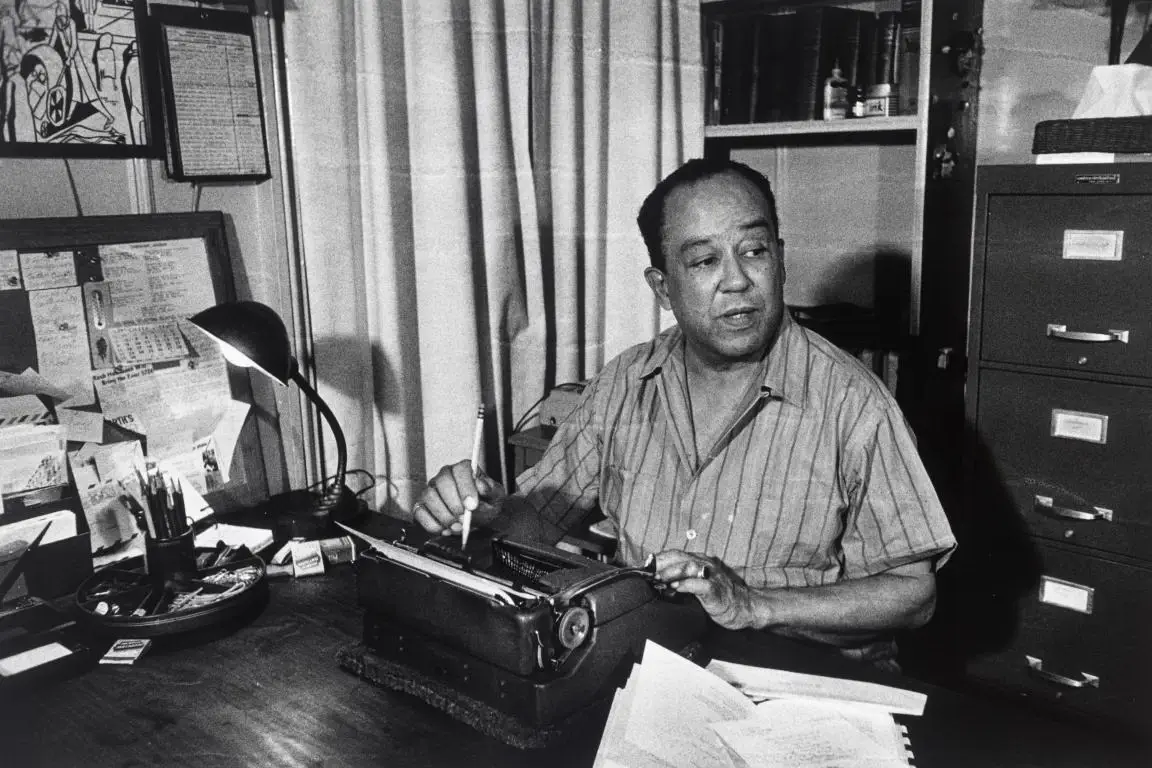
Image: nmaahc.si.edu
7. Inspiring Icons: Hughes’s Friendship with W.E.B. Du Bois
Behind great minds are often other great minds that inspire and challenge them. For Langston Hughes, one such icon was W.E.B. Du Bois. Their bond was more than just friendship; it was an intellectual camaraderie. Du Bois, a renowned sociologist, historian, and civil rights activist, played a pivotal role in Hughes’s life.
Conversations between the two were a melange of ideologies, dreams, and aspirations for the future of Black Americans. Hughes’s writings, especially those touching upon socio-political themes, were deeply influenced by the ideologies of Du Bois, showcasing the profound impact of their relationship.
8. Real-Life Struggles: Overcoming Personal Obstacles
Every great artist has their set of challenges, and Langston Hughes was no exception. From facing racial discrimination to grappling with financial hardships, his journey was marred with obstacles. Despite having a gift with words, Hughes often found himself struggling to make ends meet.
Yet, it’s these very challenges that infused authenticity into his works. The pain, the resilience, the undying spirit – it all reflected in his words. Hughes’s ability to transform his adversities into literary masterpieces made him a beacon of hope for many.
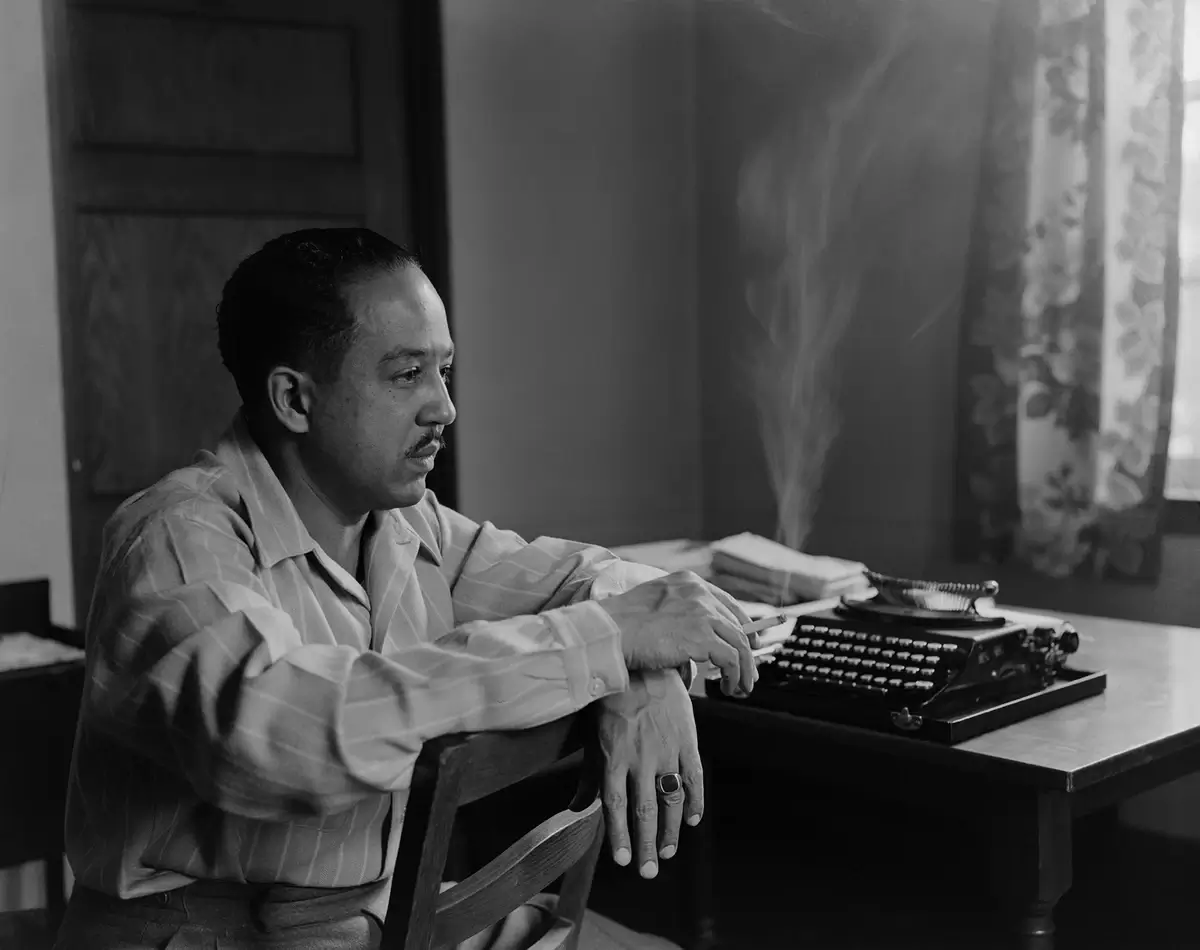
Image: media-cdn.t24.com.tr
9. Silent Love Stories: Hughes’s Ambiguous Personal Life
Langston Hughes, for all his eloquence in the literary world, remained notably tight-lipped about his personal relationships. Speculation surrounds his sexuality, with many modern scholars suggesting he might have been gay. While Hughes never openly confirmed these speculations, some of his works hint at deep, personal connections beyond mere friendship.
Despite the uncertainties, one thing remains clear: Hughes believed in love, in all its forms and shades, a belief that resonated in his writings, transcending norms and conventions.
10. African Roots: The Pulse of the Motherland in His Veins
Hughes’s connection to Africa was far from superficial; it was an essential part of his identity. In 1923, while only in his early twenties, Hughes spent a year seafaring. This journey took him to various parts of West Africa and Europe. Visiting countries like Guinea and Sierra Leone, he witnessed firsthand the everyday lives, cultures, and traditions of the African people.
During his stay in Africa, he was especially intrigued by the enduring rhythms of African drums and the rich tapestry of oral storytelling. This experience deeply influenced his poetic style, infusing it with rhythmic patterns reminiscent of African chants.
Beyond just an external journey, Hughes’s African sojourn was also a voyage inward, reconnecting with an ancestry that had been forcibly distanced due to the harsh realities of slavery and diaspora. His poems, like “The Negro Speaks of Rivers,” reflect this deep sense of connection to the African continent, as he speaks of the ancient rivers like the Congo and the Nile, which have witnessed civilizations rise and fall.
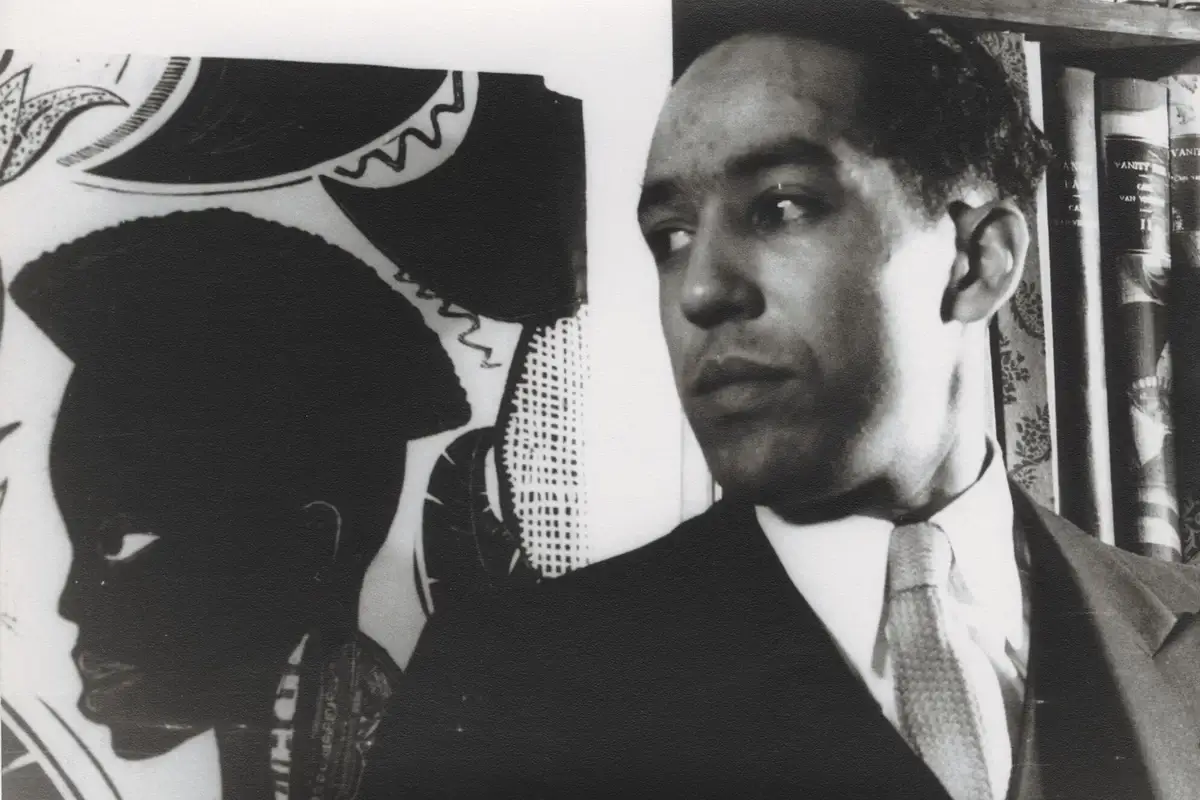
Image: poetryfoundation.org
11. Teacher & Mentor: Hughes’s Beacon of Guidance for Aspiring Talents
Langston Hughes, celebrated for his literary genius, was also a pillar of support for emerging black writers. In the heart of Harlem, he frequently hosted literary salons, offering critiques, insights, and invaluable mentorship to young talents. One notable protégé was Gwendolyn Brooks, whose first poem in a major magazine was published thanks to Hughes’s encouragement and introduction.
In addition to these personal mentorships, Hughes founded theaters in Chicago and Harlem, creating platforms for black writers to showcase their artistry. These weren’t just stages; they were incubators of talent, where Hughes’s teachings molded the next wave of literary voices.
His passion for fostering talent was evident in his academic pursuits too. With teaching stints at Atlanta University and lectures across the Soviet Union, Hughes ensured that the torch of black literature burned brightly for generations to come.
12. A Voice for the People: Representing the Everyday Black American
In an era of upheaval and change, Langston Hughes emerged as the voice for those often unheard. He chronicled the daily struggles, joys, and dreams of the everyday Black American. While other poets wrote of broad themes, Hughes depicted laundresses, jazz musicians, and weary train porters in his work.
His poem “I, Too” stands as a testament to this, offering a defiant stance against racial discrimination. It was Hughes’s way of asserting that Black Americans weren’t just a part of the American narrative; they were its very soul.
13. College Days: A Brief Stint at Columbia University
Before becoming the literary giant we know him as, Hughes had a short-lived adventure at Columbia University in 1921. Intending to study engineering, Hughes found himself clashing with the rigid academic environment and the blatant racial prejudice he encountered. This led him to leave Columbia after just a year.
However, New York left an indelible mark on him. It was here that he first encountered the vibrant Harlem community, which would later become an intrinsic part of his literary landscape.
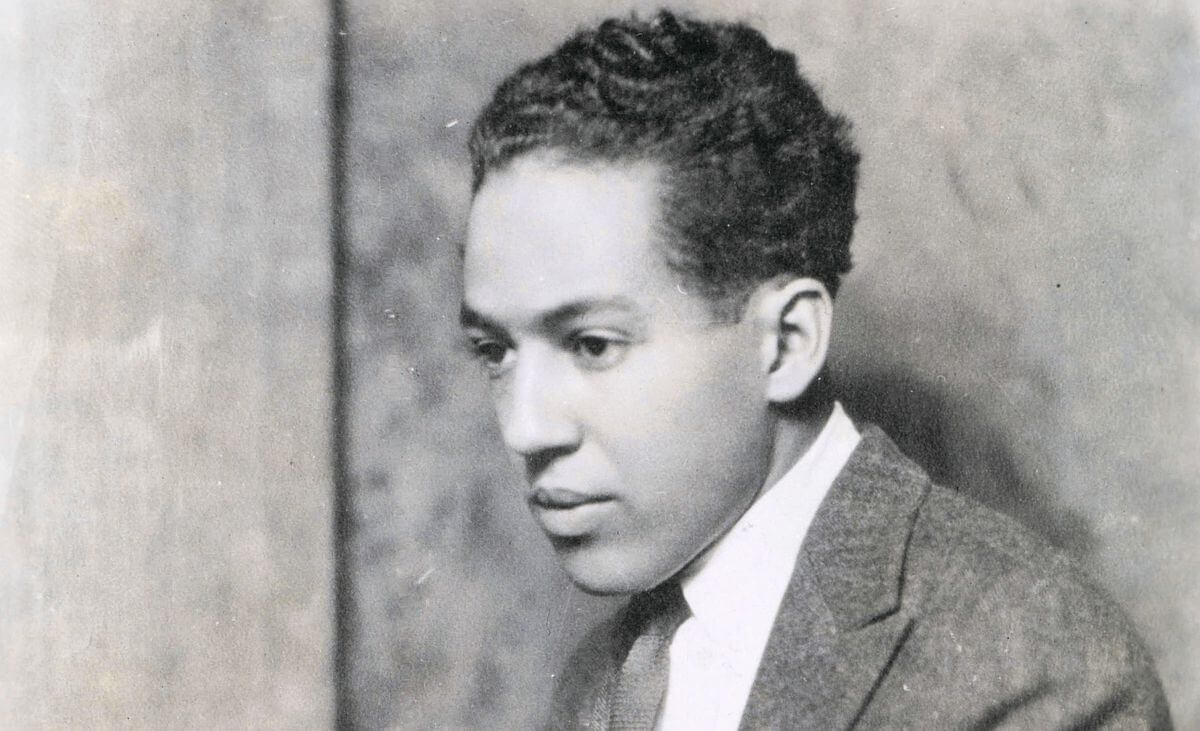
Image: tumblr.com
14. The Lincoln Influence: Molding the Writer at Lincoln University
After Columbia, Hughes found his academic sanctuary at Lincoln University, Pennsylvania, a historically black university. Here, he truly flourished, both academically and creatively. It was during these formative years that Hughes began to solidify his identity as a writer.
At Lincoln, Hughes formed lasting friendships with notable contemporaries like Thurgood Marshall, who went on to become the first African American Supreme Court Justice. The environment at Lincoln was more conducive to Hughes’s growth, away from the stifling prejudices of Columbia.
15. Civil Rights Stance: Hughes and the Civil Rights Movement
While the Civil Rights Movement gained momentum in the 1950s and 60s, its seeds were sown much earlier, with voices like Langston Hughes at the forefront. Hughes used his pen as a weapon, challenging racial segregation and discrimination. His works, filled with themes of equality, freedom, and justice, became anthems for many activists.
But his stance wasn’t just confined to paper. Hughes associated with key figures in the movement, like Martin Luther King Jr., offering both his literary and personal support. Through his writings and actions, Hughes carved a path toward a more just and equal society.
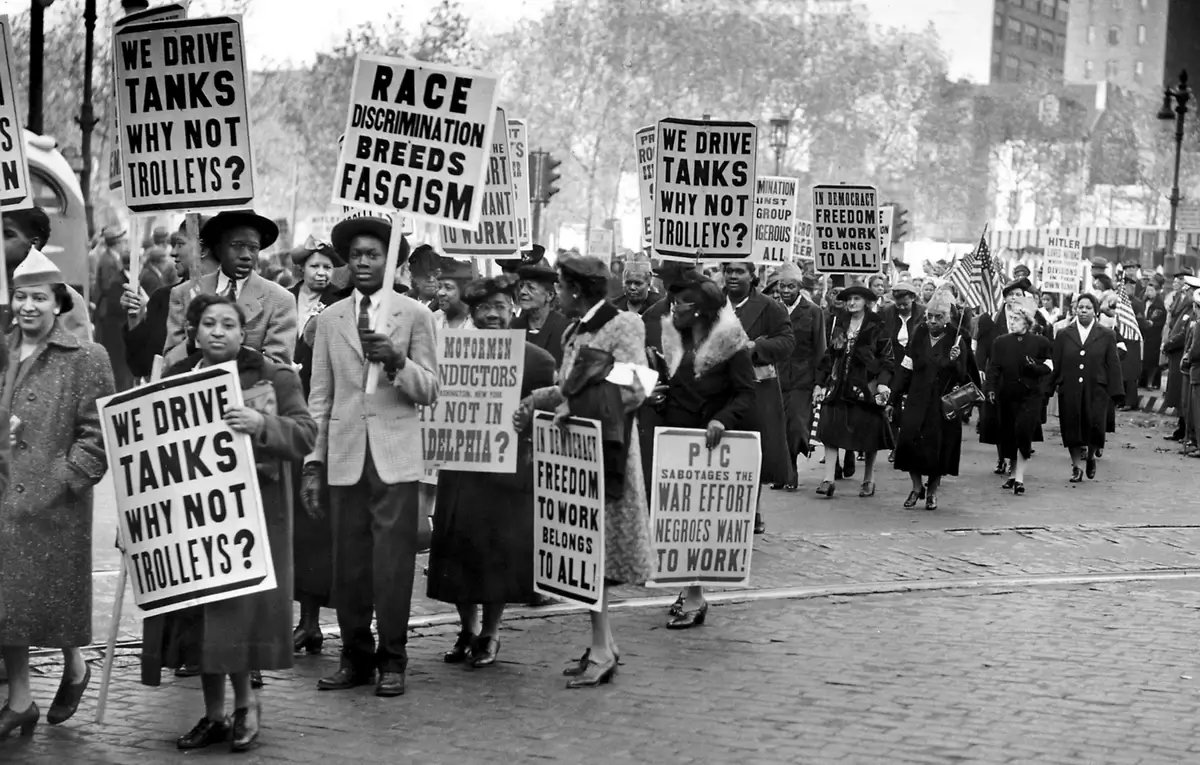
Image: perspectives.ushmm.org
16. Star Studded Funeral: A Farewell Fitting for a King of Letters
Langston Hughes’s passing in 1967 sent ripples across the globe, marking the end of an era. Harlem, the heart of his artistic endeavors, became the epicenter of grief and respect. The funeral was no ordinary affair; it mirrored the life of a man who had left indelible marks on American literature and culture.
Dignitaries, writers, activists, and artists converged in Harlem to bid farewell. Among them was Martin Luther King Jr., who had once been inspired by Hughes’s words in his fight for civil rights. Rita Dove, Maya Angelou, and other literary giants stood shoulder to shoulder, united in their grief and respect for the maestro.
The sheer magnitude of attendees and the heartfelt tributes paid were a testament to Hughes’s legacy. His words had echoed in classrooms, inspired revolutions, and consoled broken hearts. And in death, as in life, he brought together a community to celebrate the power of art and unity.
17. Lyrical Childhood: Influences from His Early Years
Langston Hughes’s literary prowess wasn’t just an overnight miracle; it was rooted in his childhood experiences. Growing up in Joplin, Missouri, young Hughes absorbed stories, songs, and tales from his family and community. These early influences – from grandmother’s tales of abolitionists to the local blues – later found a voice in his poems.
This lyrical childhood created a reservoir of experiences and emotions that Hughes dipped into throughout his literary journey. It’s a testament to how the roots of our early years can shape the giants we become later.
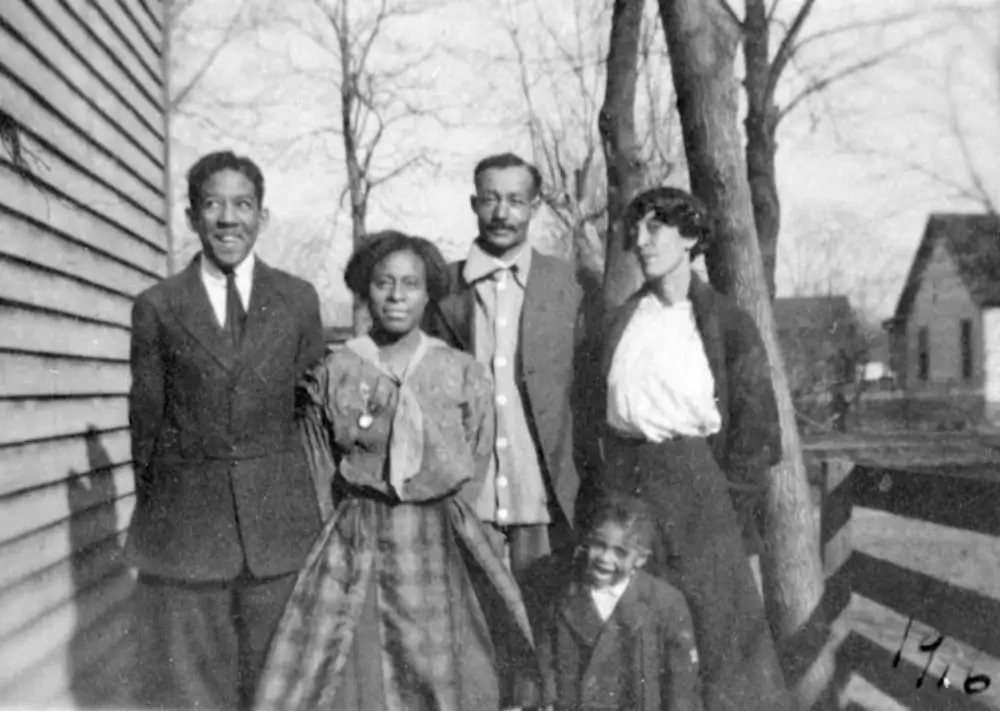
Image: theafricanamericanfolklorist.com
18. Unwavering Dedication: Writing Despite Financial Struggles
Hughes’s passion for writing was relentless. Even when faced with financial struggles, he refused to be swayed from his literary path. There were times when he lived off his meager savings, often foregoing luxuries and sometimes even necessities. But Hughes believed in his craft, often saying that he wrote not for money but for the love of it.
This unwavering dedication is evident in his vast body of work, which he continued to produce even in his toughest times. His journey is a lesson in passion, perseverance, and the unyielding spirit of art.
19. The Soviet Sojourn: A Unique Chapter in Hughes’s Life
In the 1930s, amidst the Great Depression and the rising racial tensions in America, Hughes embarked on a unique journey to the Soviet Union. Intrigued by the Communist ideals and drawn by the promise of a racially egalitarian society, Hughes participated in a film project in Central Asia. While the film never saw completion, the trip significantly influenced Hughes’s perspectives on race, class, and politics.
This venture reflected Hughes’s never-ending quest to find a space where racial equality was more than just an ideal.
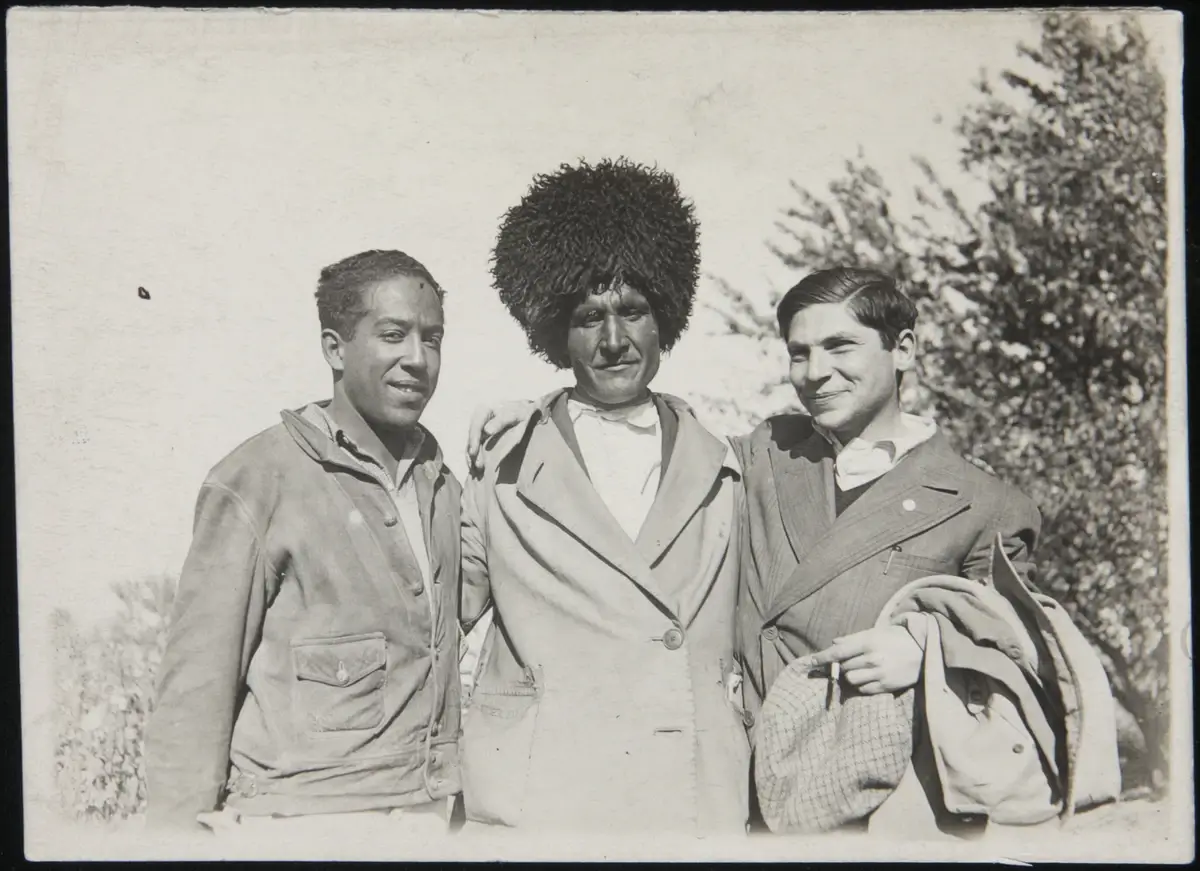
Image: thecharnelhouse.org
20. Legacy Lives On: Langston Hughes in Modern Times
While Hughes might have left us, his legacy remains immortal. Today, his works are celebrated not just for their literary brilliance but for their cultural and social impact. Schools across the United States introduce students to his writings, ensuring that new generations understand and appreciate his genius.
Moreover, contemporary artists, musicians, and writers often cite Hughes as an influence, drawing inspiration from his unique blend of music, culture, and activism. In modern times, Hughes’s spirit lives on, ever-relevant and ever-resonant.
FAQ
What were Langston Hughes’ hobbies?
Langston Hughes, beyond his prolific writing, had a penchant for traveling. These journeys not only expanded his horizons but also deeply influenced his writings. Hughes was also an avid listener of jazz and blues, music genres that found their way into the rhythm and themes of his poetry. Additionally, he loved attending theatre performances and was known for his active participation in social gatherings and literary salons in Harlem.
Why is Langston Hughes a hero?
Langston Hughes is considered a hero because of his unwavering commitment to giving a voice to the Black American experience. At a time when Black voices were often marginalized, Hughes wrote about their joys, struggles, and everyday lives with authenticity. His poems, essays, and stories championed the rights of the common man and resonated with the masses. Hughes also played a crucial role in the Harlem Renaissance, pushing the boundaries of Black art and culture.
Was Langston Hughes an athlete?
No, Langston Hughes was not known to be an athlete. His primary interests lay in the literary and artistic fields, where he achieved remarkable success and left an indelible mark.
Did Langston Hughes ever marry?
Langston Hughes remained a bachelor throughout his life. While he had many close friendships and associations, he never married.
What was Langston Hughes’ cause of death?
Langston Hughes passed away due to complications from prostate cancer. He died on May 22, 1967, in New York City.
How old was Langston Hughes when he died?
Langston Hughes was 66 years old at the time of his death. He was born on February 1, 1901, and died on May 22, 1967.
How many poems did Langston Hughes write?
Langston Hughes was a prolific writer, having penned more than 800 poems during his lifetime. In addition to poetry, he wrote numerous essays, short stories, plays, and novels.
What inspired Langston Hughes?
Hughes drew inspiration from various sources. The sounds and rhythms of jazz and blues, the tales and struggles of everyday Black Americans, and his travels around the world deeply influenced his works. The Harlem Renaissance, a cultural movement during the 1920s, also played a pivotal role in shaping his literary style and themes.
Why was Langston Hughes unique?
Langston Hughes was unique for his ability to blend the cadences of jazz and blues into traditional poetic forms, creating a distinctive voice that was both authentic and innovative. His poems celebrated the beauty and strength of the Black community, yet were universal in their appeal. Hughes was also one of the first to use the language and vernacular of everyday Black Americans in his writings, giving them a genuine voice in literature.
How many kids did Langston Hughes have?
Langston Hughes did not have any children. He remained a lifelong bachelor and left no direct descendants.


